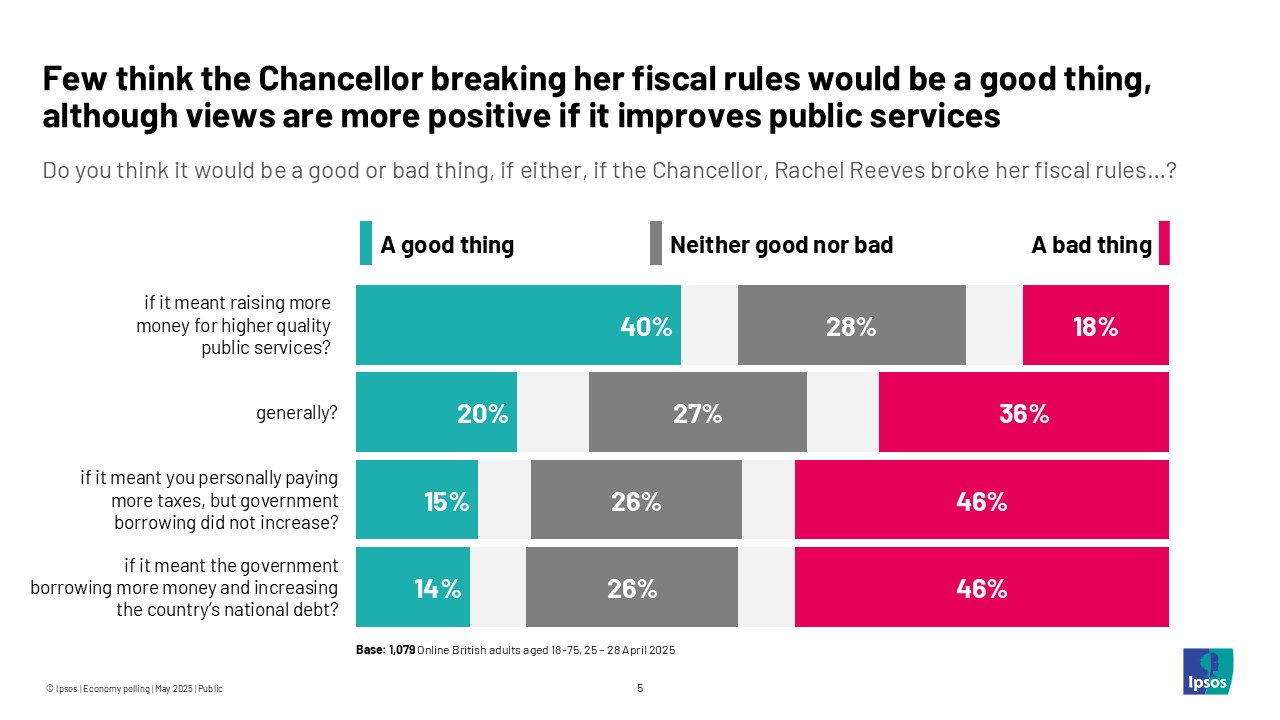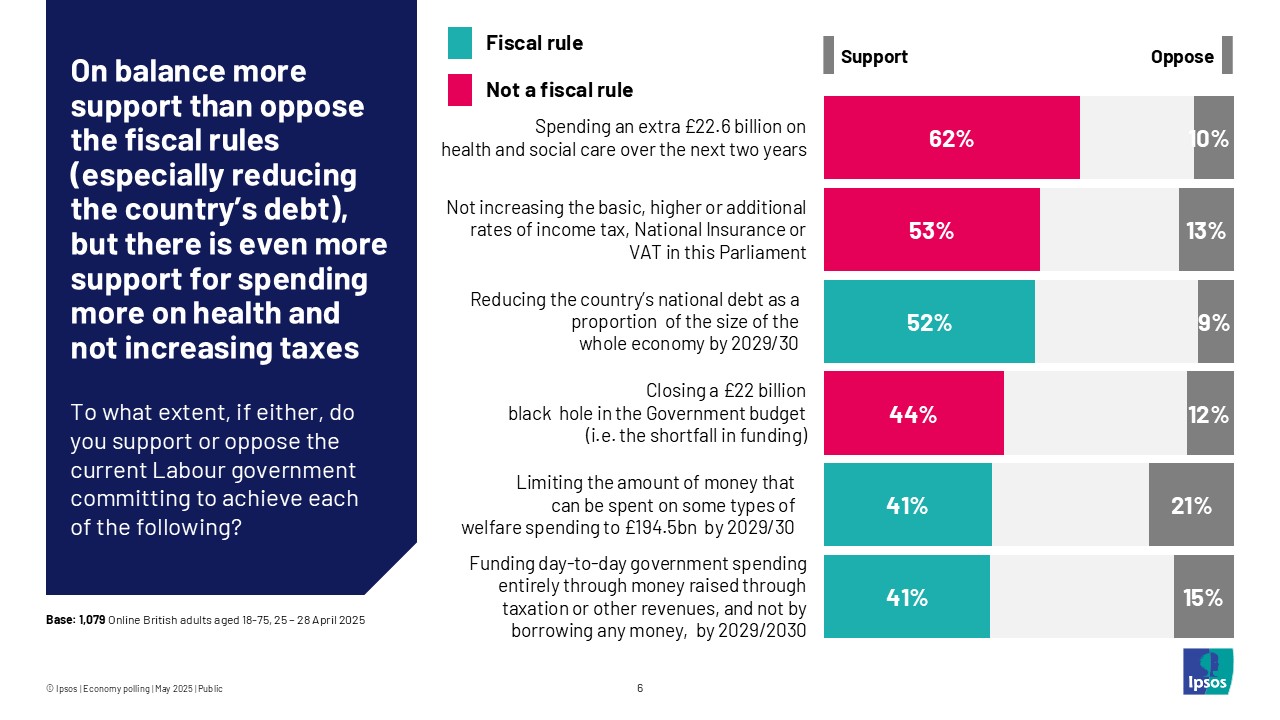Just 1 in 5 would support the Chancellor breaking her fiscal rules, but support increases if it means more money for public services - though public awareness of rules is low
A new Ipsos in the UK poll, in partnership with the New Statesman, reveals that while awareness of Chancellor Rachel Reeves’ fiscal rules is low, the public are on balance supportive of them (although few think it likely that they will be met). Two in five (40%) say it would be a good thing for her to break them if it leads to more money for public services – though support for breaking the rules diminishes dramatically if it means higher taxes (down to 15%) or increases in the government borrowing (14%).
Key findings
- Awareness of fiscal rules: Public understanding of the Chancellor's fiscal rules is low. While 27% claim to know at least a fair amount about them, two in three (65%) say they don’t know very much or nothing at all. Awareness is slightly higher among 2024 Labour voters, with 35% saying they knew at least a fair amount about them.
- Knowledge of specific rules: Around one in four can correctly identify each of the Chancellor’s three fiscal rules: reducing the country’s national debt as a proportion of GDP by 2029/30 (29%), funding day-to-day spending only through taxation by 2029/30 (26%) and limitations to welfare spending (26%). However, around three in ten (32%) also incorrectly believe the rules include closing a £22 billion government budget “black hole”, and 24% think they include the promise not to raise income tax, National Insurance or VAT. A significant proportion (34%) also said that they don’t know any of the fiscal rules.
- Can the rules be broken? Two in five (40%) believe it would be a good thing for Reeves to break her fiscal rules if it meant raising more money for higher quality public services. However, only 20% think breaking the rules would be a bad thing generally, and 46% each disapprove of breaking them if it leads to them personally paying more taxes, or increased government borrowing and national debt.

- Support for specific policies: There is support for the Chancellor’s fiscal rules with most (52%) supporting reducing the country’s national debt, although slightly fewer (but still more than oppose) in favour of limiting welfare spending (41%) or funding day-to-day spending entirely through taxation (41%). However, there is even greater support for other economic commitments, such as three in five (62%) backing spending an extra £22.6 billion on health and social care over the next two years, and just over half supporting the government’s pledge not to increase income tax, National Insurance, and VAT rates in this Parliament (53%).

- Likelihood of achieving fiscal goals: Around two in five think it is unlikely the Chancellor will meet her fiscal rules to reduce the country’s debt (44%) or fund day-to-day spending entirely through taxation (37%). Opinion is more divided on whether she will successfully limit welfare spending (29% likely vs. 32% unlikely).
- Chancellor's performance: Almost half (46%) of Britons rate Rachel Reeves' performance as Chancellor negatively, with only 19% saying that she is doing a good job.
- Comparisons with previous Chancellors: The poll also asked the public to evaluate the performance of previous Chancellors. Nearly half of respondents said they didn't know whether these Chancellors followed or broke their fiscal rules, highlighting a general lack of awareness about past adherence to fiscal policy. Kwasi Kwarteng received the most negative ratings, with almost half (47%) saying he did a bad job. Opinions on Gordon Brown, Rishi Sunak, and George Osborne were more divided, although only Brown received more praise than criticism.
Commenting on the findings, Gideon Skinner, Senior Director of UK Politics at Ipsos, said:
Our latest Ipsos in the UK research suggests that if the Chancellor were to break her fiscal rules, she would likely be on risky political ground, unless she can persuade the public that it would lead to worthwhile improvements to public services. This is despite many Britons being broadly honest about the fact they don’t know what the rules are. The public broadly support most of her fiscal rules in principle, which suggests they are in favour of governments following fiscal discipline, and few would be in favour of breaking them, especially if they felt they led to higher taxes or increased borrowing. However, there is more public acceptability for breaking the rules if people can be convinced it would lead to more money for better quality public services. Overall, though, the public remain more interested in tangible outcomes than the details of government finances – they place more priority on improving health and social care and not increasing personal taxes than many of the Chancellor’s fiscal rules, even though the two may be connected.
Technical note:
- Ipsos interviewed a representative sample of 1,079 adults aged 18-75 across Great Britain. Polling was conducted online from the 25th-28th April 2025.
- Data are weighted to match the profile of the population. All polls are subject to a wide range of potential sources of error.





